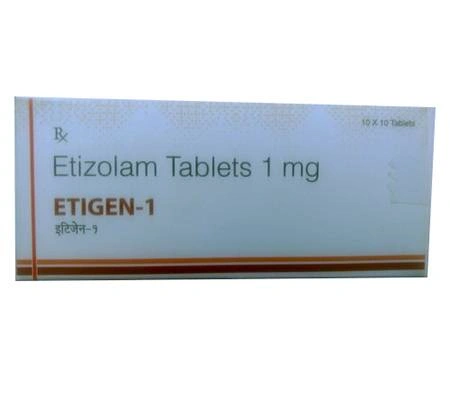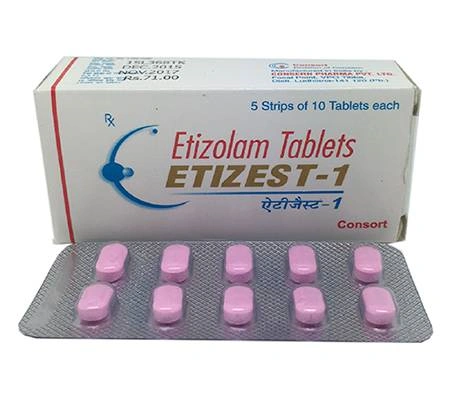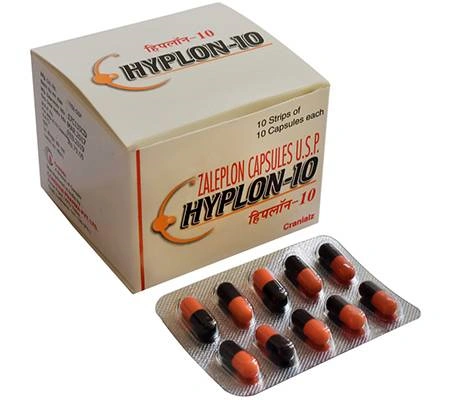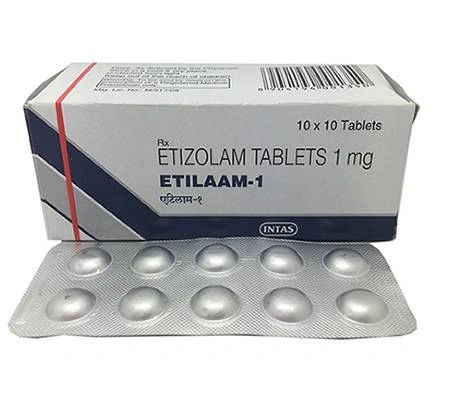
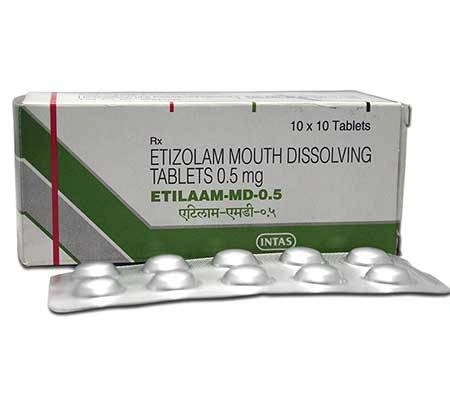
Etilaam MD 0.5 mg
Characteristics
Description
Etilaam MD is Thienobenzodizepine medication which contain Etizolam. Etilaam MD acts as an anxiolytic, sedative-hypnotic, and antidepressant. Etilaam MD prescribed as oral therapy for the treatment of anxiety disorders such as panic attacks or generalized anxiety and depression in adult patients. Etilaam MD is useful for the short-term treatment of insomnia. Etilaam MD acts as anti-convulsant which relaxes the body’s skeletal muscles, thereby treating various medical conditions. Etilaam MD is selective and have a high affinity for the alpha2 subunit of the postsynaptic GABA receptor.
Etilaam MD contain Etizolam, which mimics the properties of an anti-convulsant. Etizolam is also administered to patients for the short-term treatment of insomnia. Etizolam is also useful for the treatment of situational anxiety such as panic attacks, phobic neurosis. Etilaam MD pills are used for the treatment of secondary psycho-somatic illnesses such as headache, irritable bowel syndrome (IBS) and hypertension.
The maximum daily dosage of Etilaam MD should not exceed 3 mg. The recommended dosage for anxiety disorders is 0.25-0.5 mg Etizolam twice daily. The suggested dosage for panic disorders is 0.5 mg twice daily. Doctors recommend a dosage of 1-2 mg Etizolam daily during bedtime for patients suffering from insomnia (inability to sleep).
A treatment course constituting Etilaam MD should not be prescribed for more than 12 weeks. Do not discontinue the course of treatment with Etilaam MD without consulting your doctor. The treatment with Etilaam should not be stopped abruptly. Instead, you should gradually decrease the dosage of Etilaam MD to avoid the development of any unnecessary withdrawal effects.
Cardiovascular System: decreased heart rate, hypotension, slow heartbeat. Central Nervous System: - Drowsiness, sedation, ataxia, vertigo, headache, confusion, depression, slurred speech, coma. Eye and ENT: - visual disturbances, involuntary eye movement and eyelid closure. Gastrointestinal System: - changes in salivation, nausea, vomiting, dry mouth. Genitourinary System: - changes in libido, urinary retention, GI disturbances. Musculoskeletal System: - muscle weakness, muscle relaxation. General: - amnesia, decreased appetite, respiratory depression.
Recommended products for you
-
Etilaam$ 45$ 54SALE
-
Etilaam 0.5 mg
Etilaam$ 40$ 48SALE -
Etigen 1 mg
Etilaam$ 0,29$ 0,35SALE -
Etizest 1 mg
Etilaam$ 0,60$ 0,72SALE -
Hyplon 10 mg
Sonata$ 1,12$ 1,34SALE

